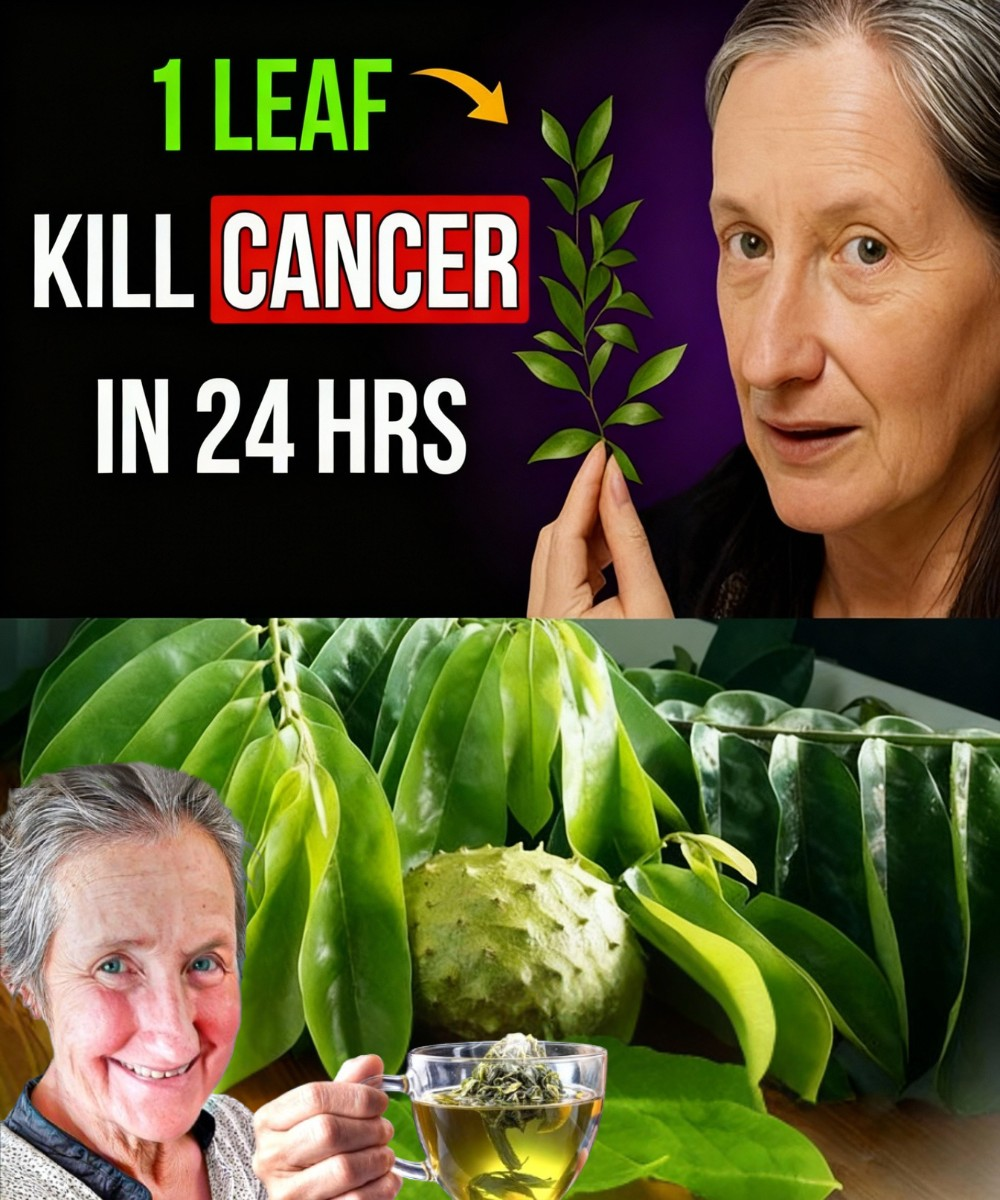More critically, the very potency that makes soursop exciting is also the source of its inherent risks:
Neurotoxicity Warning: Soursop, particularly the seeds and fruit, contains high levels of a naturally occurring neurotoxin called annonacin. Consumption of large quantities over time has been linked to atypical Parkinson’s disease and other neurological disorders in regions where the fruit is heavily consumed. This is a severe caution that cannot be ignored.
Drug Interactions: The plant can act as a natural vasodilator (widening blood vessels), potentially leading to low blood pressure. It may also interact with prescription medications, especially those for blood pressure, diabetes, or nerve function, causing dangerous side effects.
Digestive Distress: Over-consumption of the leaves or fruit can cause uncomfortable side effects, including nausea, vomiting, and constipation.
The imagery of the woman holding the leaf against a dark background should be seen not just as a symbol of hope, but as a silent, powerful cautionary tale: approach this potent natural remedy with the utmost respect and informed intelligence.
⚖️ Separating Fact from Fiction: What True Science Affirms
The ongoing scientific exploration of soursop is a testament to the fact that the plant holds significant therapeutic promise, but that promise is currently unfulfilled in the realm of cancer cure.
Researchers around the globe are actively investigating the mechanism of AGEs, seeking to synthesize or modify them into a usable, safe pharmaceutical compound. Studies are continually emerging, identifying not only potential anti-cancer properties but also other significant activities:
Anti-diabetic potential: Extracts may help regulate blood sugar levels.
Anti-ulcer properties: Traditionally used for digestive health, modern research is looking into its role in protecting the stomach lining.
Mood and Sleep: Compounds in the leaves are often brewed into a tea for its calming effects, lending credence to its traditional use as a relaxant and sleep aid.
However, the current scientific consensus is unified: Soursop is not a clinically proven, standalone cure for cancer. Regulatory bodies, including the FDA, have not approved soursop for the prevention or treatment of cancer or any other major disease, emphasizing the absolute necessity of further, rigorous human testing.
This gap between compelling laboratory results and validated human medicine is the very essence of the scientific process. It invites you to maintain a healthy balance between optimism for the future and skepticism for the present hype.
🌱 Your Next Step: Safe, Informed, and Mindful Exploration
Given the incredible global interest, how should you safely integrate soursop into your life, if at all?
If you are intrigued by its traditional uses and nutritional benefits, the key is to adopt a mindset of informed caution:
Consult Your Doctor First: This is non-negotiable. Always discuss the use of soursop—whether the fruit, leaves, or a supplement—with a qualified healthcare professional, especially if you have a pre-existing medical condition, are pregnant, or are taking any prescription medication.
Source Wisely: Obtain leaves or fruit from reputable, ethical suppliers to minimize the risk of pesticide exposure or misidentification.
Mindful Consumption:
The Fruit: Enjoy the fruit fresh, blended into smoothies, or juiced, but always avoid eating the seeds or excessive quantities, given the annonacin concern.
The Tea: To make a traditional tea, steep 1-2 fresh or dried soursop leaves in hot water for about 10–15 minutes. Start with small, infrequent amounts to gauge your body’s tolerance.
Soursop represents an important cultural and traditional legacy, one that connects us to nature’s incredible pharmacy. Engaging with it can indeed be an emotional and grounding journey, fostering a sense of control and connection to natural health practices.
Ultimately, the choice is yours: to enjoy soursop as a rich, nutritious tropical fruit and an intriguing traditional remedy, or to step back and admire its potential from afar. But regardless of your choice, the adventure continues—one that requires an open mind, a critical eye, and an unwavering commitment to personal safety.
The soursop leaf, the spiky fruit, and the bold, viral claim will continue to capture the imagination. Will you remain captivated by the sensationalized myth, or will you choose the more challenging, but ultimately more rewarding, path of uncovering the true, nuanced scientific reality?
Would you like me to find out about other tropical plants that have been linked to potential anti-cancer properties?
